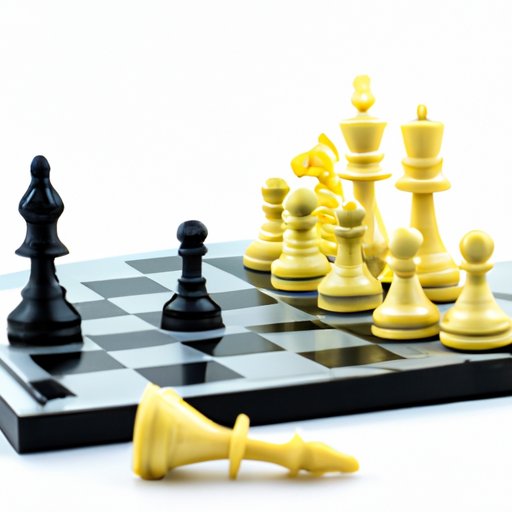
Introduction
If you’re looking to improve your chess game, you’re in the right place. Chess is a complex, fascinating game that rewards careful study and practice. Whether you’re a beginner or an experienced player, there’s always more to learn. In this article, we’ll explore some of the best ways to get good at chess, from mastering the basics to joining a chess club.
This article is written for anyone looking to improve their chess skills, whether you’re a casual player or a serious competitor. Our goal is to provide practical, actionable tips that you can start using immediately to take your game to the next level.
Develop a Solid Understanding of the Basic Principles
Before you can become a strong chess player, you need to have a solid understanding of the game’s basic principles. These are the fundamental concepts that underpin all successful chess strategies. Without them, you’ll struggle to make meaningful progress.
Some of the key principles to focus on include:
- Controlling the center of the board
- Making efficient moves
- Protecting your king
- Developing your pieces
- Creating pawn structures that support your pieces
Mastering these principles requires a lot of practice and study, but it’s well worth the effort. Once you have a solid grasp of these fundamentals, you’ll be able to build more complex strategies and respond effectively to your opponents’ moves.
Study Famous Games and Puzzles
One of the best ways to improve your chess skills is to study the games of famous players. By analyzing their games, you can gain insights into strategy and tactics that you might not have considered on your own.
Some of the most famous chess games include:
- The Immortal Game
- The Opera Game
- The Game of the Century
- The Evergreen Game
- The Brilliancy Prize Game
Each of these games is notable for its innovative and creative play, making them excellent examples to study and analyze.
In addition to studying famous games, you can also work on solving chess puzzles. These brainteasers are a great way to sharpen your mind and improve your ability to visualize the board. Many chess books and websites offer puzzles of varying levels of difficulty, from beginner to grandmaster.
Play Regularly and Analyze Your Games
There’s no substitute for playing chess if you want to get good at it. The more you play, the more experience you’ll gain, and the better you’ll become. But it’s not enough just to play – you also need to analyze your games if you want to improve.
When analyzing your games, look for mistakes and patterns of play that you can improve on. Try to identify specific moments where you could have made a better move or a smarter decision. This will help you learn from your mistakes and make better decisions in future games.
There are many tools available to help you analyze your games, from chess notation software to analysis engines that can point out mistakes and suggest better moves. Take advantage of these resources to get the most out of your game analysis.
Familiarize Yourself with Different Openings
Openings are the initial moves that players make at the start of a game. Familiarizing yourself with different openings is an important part of becoming a strong chess player, as it allows you to choose the opening that best fits your playing style and adapt to your opponent’s moves.
Some popular openings include:
- The Sicilian Defense
- The Ruy Lopez
- The French Defense
- The Queen’s Gambit
- The King’s Indian Defense
Each opening has its own strengths and weaknesses, so it’s important to experiment with different openings and find the ones that work best for you. Remember to play to your own strengths and preferences, rather than simply copying what other players do.
Join a Community or Chess Club
Playing chess with other people is a great way to improve your skills. By joining a chess club or community, you can get exposure to different styles of play and learn from more experienced players. You’ll also have access to resources like books, puzzles, and analysis tools that can help you improve faster.
To find a chess club near you, try searching online or asking at your local game store or community center. You can also check with your school or workplace to see if they have a chess club you can join.
Conclusion
Improving at chess takes time and effort, but it’s a rewarding journey that can lead to a lifetime of enjoyment. By focusing on the basics, studying famous games and puzzles, playing regularly and analyzing your games, familiarizing yourself with different openings, and joining a chess community, you’ll be well on your way to becoming a stronger player.
Remember, the key to getting good at chess is to practice regularly and approach the game with patience and curiosity. Keep an open mind and a willingness to learn, and you’ll be amazed at how far you can go.





